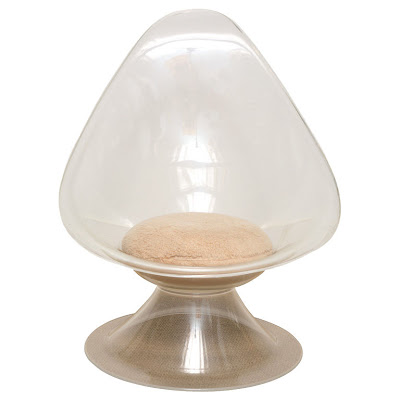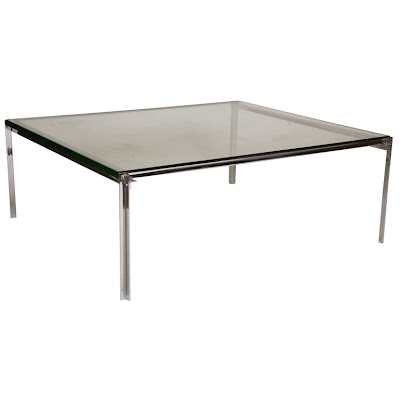Sometimes when we do posts on certain design influences from the past or present, we do so because they are so important to the history of design that we feel we must share—they’re the people and designs everyone should know. Other times, we sometimes do posts on designers because we want to know more about them. We were pleasantly surprised to come across the Lavernes, their designs and their bittersweet, yet wildly unknown, story.



It was actually kind of difficult to find a lot of information about Erwine and Estelle Laverne, even though some of their designs are some of the most important in the world. They’re most famous for four furniture designs, collectively known as the Invisibles. Called the Lily, Jonquil, Buttercup and Daffodil, these pieces are widely considered to be some of the first modern furniture to be made with the acrylic material, and they featured rounded edges, sleek lines and an overwhelming eloquence. As quoted in an article written by the New York Times, Erwine Laverne once said ''the most important element in rooms is people, not furniture.''


 It was actually kind of difficult to find a lot of information about Erwine and Estelle Laverne, even though some of their designs are some of the most important in the world. They’re most famous for four furniture designs, collectively known as the Invisibles. Called the Lily, Jonquil, Buttercup and Daffodil, these pieces are widely considered to be some of the first modern furniture to be made with the acrylic material, and they featured rounded edges, sleek lines and an overwhelming eloquence. As quoted in an article written by the New York Times, Erwine Laverne once said ''the most important element in rooms is people, not furniture.''
It was actually kind of difficult to find a lot of information about Erwine and Estelle Laverne, even though some of their designs are some of the most important in the world. They’re most famous for four furniture designs, collectively known as the Invisibles. Called the Lily, Jonquil, Buttercup and Daffodil, these pieces are widely considered to be some of the first modern furniture to be made with the acrylic material, and they featured rounded edges, sleek lines and an overwhelming eloquence. As quoted in an article written by the New York Times, Erwine Laverne once said ''the most important element in rooms is people, not furniture.''

 Coming from a background in art (Erwine studied at the Paris L'Ecole des Beaux-Arts), the Laverne’s approached designing furniture differently than their contemporaries. Eames, Saarinen, Jacobsen and others came from industrial or engineering backgrounds, but the Laverne’s took a much more creative, artful approach, and it really showed in their work.
Coming from a background in art (Erwine studied at the Paris L'Ecole des Beaux-Arts), the Laverne’s approached designing furniture differently than their contemporaries. Eames, Saarinen, Jacobsen and others came from industrial or engineering backgrounds, but the Laverne’s took a much more creative, artful approach, and it really showed in their work.
 Along with furniture, they were also prolific interior designers, with such projects as the house of film director Otto Preminger, the Sheraton Hotel in Dallas, Texas and even offices for big-name companies like General Motors and Ford Motors. Also during their golden years of design (the 1950’s and 1960’s) they designed and created over hand-printed fabric and wallpaper designs.
Along with furniture, they were also prolific interior designers, with such projects as the house of film director Otto Preminger, the Sheraton Hotel in Dallas, Texas and even offices for big-name companies like General Motors and Ford Motors. Also during their golden years of design (the 1950’s and 1960’s) they designed and created over hand-printed fabric and wallpaper designs.
 Their sad story comes to an end when they were sued for producing wallpaper designs out of their residential home. They considered it handicraft, but the state considered it manufacturering. They were eventually left broke from the legal proceedings, and though they’ve now passed away, their gorgeous and “invisible” designs live on.
Their sad story comes to an end when they were sued for producing wallpaper designs out of their residential home. They considered it handicraft, but the state considered it manufacturering. They were eventually left broke from the legal proceedings, and though they’ve now passed away, their gorgeous and “invisible” designs live on.